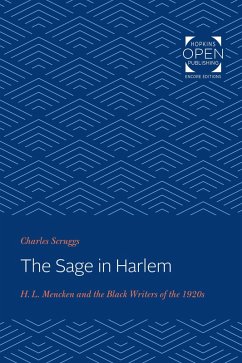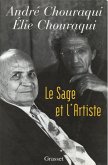Originally published in 1984. The Sage in Harlem establishes H. L. Mencken as a catalyst for the blossoming of black literary culture in the 1920s and chronicles the intensely productive exchange of ideas between Mencken and two generations of black writers: the Old Guard who pioneered the Harlem Renaissance and the Young Wits who sought to reshape it a decade later. From his readings of unpublished letters and articles from black publications of the time, Charles Scruggs argues that black writers saw usefulness in Mencken's critique of American culture, his advocacy of literary realism, and his satire of America. They understood that realism could free them from the pernicious stereotypes that had hounded past efforts at honest portraiture, and that satire could be the means whereby the white man might be paid back in his own coin. Scruggs contends that the content of Mencken's observations, whether ludicrously narrow or dazzlingly astute, was of secondary importance to the Harlem intellectuals. It was the honesty, precision, and fearlessness of his expression that proved irresistible to a generation of artists desperate to be taken seriously. The writers of the Harlem Renaissance turned to Mencken as an uncompromising-and uncondescending-commentator whose criticisms were informed by deep interest in African American life but guided by the same standards he applied to all literature, whatever its source. The Sage in Harlem demonstrates how Mencken, through the example of his own work, his power as editor of the American Mercury, and his dedication to literary quality, was able to nurture the developing talents of black authors from James Weldon Johnson to Richard Wright.
Dieser Download kann aus rechtlichen Gründen nur mit Rechnungsadresse in A, B, BG, CY, CZ, D, DK, EW, E, FIN, F, GR, HR, H, IRL, I, LT, L, LR, M, NL, PL, P, R, S, SLO, SK ausgeliefert werden.









